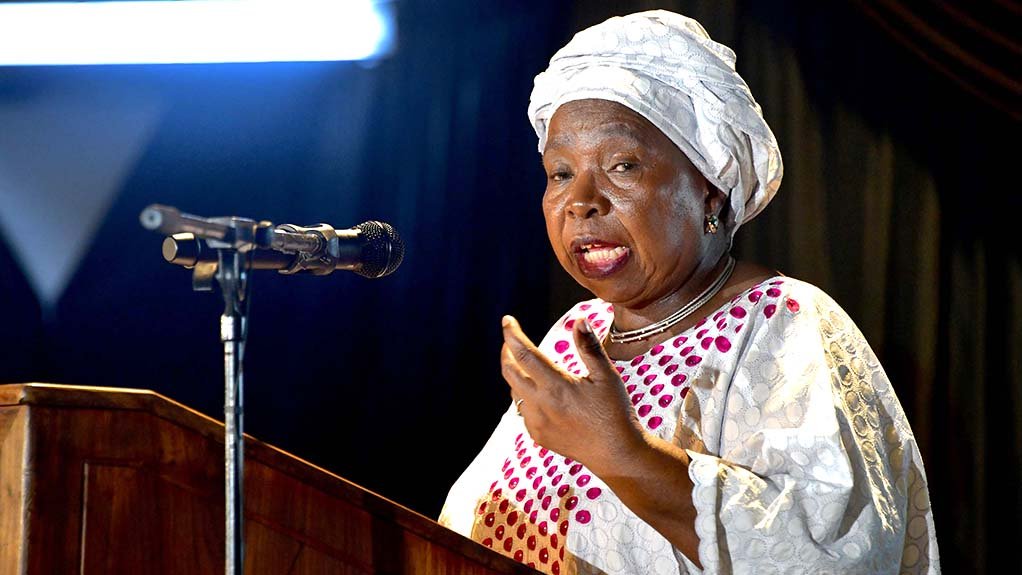Minister in the Presidency for Women, Youth and People with Disabilities Nkosazana Dlamini-Zuma noted on Wednesday that gender inequality and discrimination have had a profoundly detrimental effect on women and society.
Dlamini-Zuma was delivering the keynote address at the Independent Electoral Commission’s Women’s Dialogue, where she explained that inequality had particularly hindered the use of humanity’s collective intelligence and talent in confronting some of the most pressing developmental challenges.
“From climate change and hunger to pandemics and the digital divide, we have all been found wanting, to the extent that we continue to side-line women from decision-making, access to skills development and the control over the levers of economic power. Society will not reach its full potential,” she said.
She noted that discrimination against women was incompatible with human dignity.
She added that this was an obstacle to the full development of the potential of women in the service of their countries and of humanity.
Dlamini-Zuma explained that when it came to political participation and representation in critical decision-making bodies, the picture was far from ideal.
“While some African countries have surpassed the 50% mark of women in political decision-making at a Parliament level, progress has been slow at local government level and Cabinet-level participation,” she noted.
She highlighted that there was a need for African Union member States to invest in capacity-building programmes, voter education and documentation systems to ensure that women were equipped with the necessary resources to campaign while in office and after their political tenure expired.
However, she noted significant progress in countries such as Rwanda, Senegal and South Africa.
“In Rwanda 61% of MPs are women. This figure stands at 46% in South Africa and 41% in Senegal. In all cases, the increase in the number of women has moved beyond ‘ticking the box’, these countries are placing women empowerment at the centre of the development agenda,” she said.
She noted that Rwanda and Uganda had been exemplary in legislation, adding that through Gender Responsive Budgeting, MPs in Rwanda and Uganda have been able to challenge traditional budgeting that “overlooks the gendered nature of societal roles”, and this has resulted in implicit bias against women in the allocation of resources.
Dlamini-Zuma explained that by tailoring services and policies to meet the specific needs of different groups, governments were able to ensure that resources were not wasted on ineffective one-size-fits-all approaches.
She said beyond the continent, Scandinavian countries such as Sweden had made a clear commitment to move beyond words and let gender equality have a formative impact on policy choices and priorities, and in the allocation of resources.
However, she explained that the increased representation of women in Parliaments had not necessarily translated into heads of State.
“Whenever the AU heads of State gather in Addis Ababa, it is still a male club. A lot more work still needs to be done in this regard,” she said.
EMAIL THIS ARTICLE SAVE THIS ARTICLE ARTICLE ENQUIRY
To subscribe email subscriptions@creamermedia.co.za or click here
To advertise email advertising@creamermedia.co.za or click here











